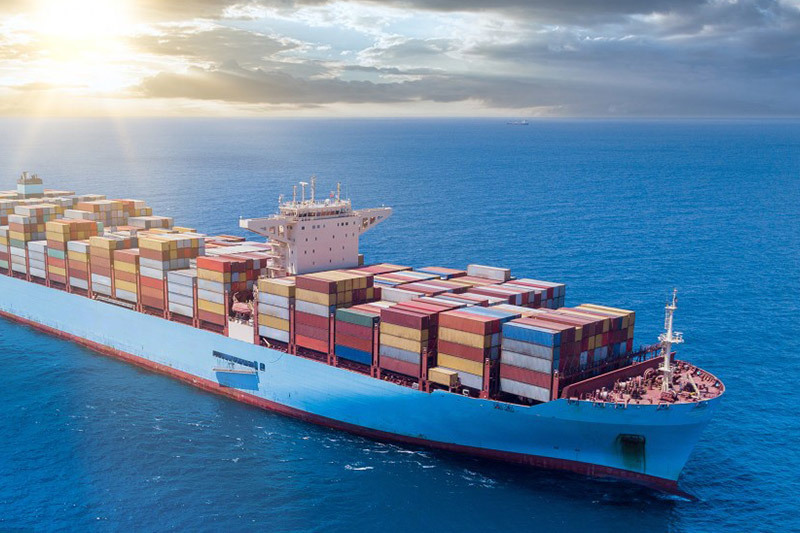news
The Future of Maritime Logistics: Innovations in Ship Operations Management
The Future of Maritime Logistics: Innovations in Ship Operations Management
Table of Contents
- Introduction to Maritime Logistics Innovations
- Emerging Technologies Revolutionizing Shipping
- The Role of Data Analytics and AI in Ship Operations
- Sustainable Shipping Practices for a Greener Future
- Automated and Connected Ships: The Future of Navigation
- Challenges and Opportunities in Maritime Logistics
- Strategies for Successful Ship Management
- Future Trends in Maritime Logistics
- Conclusion
- FAQs
Introduction to Maritime Logistics Innovations
The maritime industry is undergoing a significant transformation, driven by **technological advancements** and the need for **sustainability**. As global trade continues to expand, effective ship operations management has become essential. Innovations in maritime logistics not only enhance operational efficiency but also address the environmental challenges facing the industry. This article explores the latest advancements in ship operations management and their implications for the future of logistics.
Emerging Technologies Revolutionizing Shipping
The integration of **emerging technologies** is reshaping the landscape of maritime logistics. Key innovations include:
1. Blockchain Technology
Blockchain technology offers a decentralized, transparent method for tracking shipments, reducing fraud, and improving trust among stakeholders. By recording transaction data securely, blockchain enhances accountability in the supply chain.
2. Internet of Things (IoT)
The Internet of Things connects various devices and sensors on ships, enabling real-time data collection. This connectivity facilitates predictive maintenance, allowing operators to address issues before they escalate.
3. Drones and Autonomous Vessels
Drones are increasingly used for **cargo inspections**, while autonomous vessels promise to revolutionize navigation and freight transport. These technologies reduce human error and operational costs, ensuring safer shipping practices.
The Role of Data Analytics and AI in Ship Operations
Efficient ship operations management relies heavily on data-driven decision-making. **Data analytics** and **artificial intelligence (AI)** are at the forefront of this evolution:
1. Enhanced Decision-Making
AI algorithms analyze vast amounts of data from various sources, providing actionable insights that enhance decision-making. Ship managers can optimize routes, reduce fuel consumption, and improve overall efficiency.
2. Predictive Analytics
Predictive analytics helps anticipate demand fluctuations, optimize cargo loads, and enhance fleet management. By forecasting trends, shipping companies can better allocate resources and improve service delivery.
3. Real-Time Monitoring
Real-time monitoring allows for continuous assessment of ship performance, ensuring optimal operations. Through advanced analytics, operators can track vessel conditions, weather patterns, and port activities to make informed decisions.
Sustainable Shipping Practices for a Greener Future
Sustainability is a pressing concern in maritime logistics. Shipping companies are adopting practices to minimize their environmental impact:
1. Alternative Fuels
Transitioning to **alternative fuels** such as LNG, biofuels, and hydrogen can significantly reduce greenhouse gas emissions. These cleaner energy sources are essential for achieving sustainability goals.
2. Energy Efficiency Technologies
Implementing energy-efficient technologies, such as hull modifications and waste heat recovery systems, can decrease fuel consumption and operational costs. These innovations contribute to a greener maritime industry.
3. Eco-Friendly Shipping Practices
Adopting eco-friendly practices, such as **slow steaming** and optimizing cargo loads, enhances fuel efficiency. These strategies not only reduce emissions but also lower shipping costs.
Automated and Connected Ships: The Future of Navigation
Automation is transforming ship operations, offering numerous advantages:
1. Autonomy in Navigation
Automated navigation systems minimize human intervention, reducing the potential for errors. These systems use advanced algorithms and sensor data to navigate safely.
2. Improved Safety Measures
Automated systems enhance safety by providing real-time alerts and monitoring critical parameters. This capability allows crew members to focus on strategic operations rather than routine tasks.
3. Enhanced Communication
Connected ships facilitate seamless communication between vessels, ports, and logistics networks. This connectivity improves coordination, reduces delays, and enhances overall efficiency.
Challenges and Opportunities in Maritime Logistics
While the maritime industry is evolving, it faces several challenges that must be addressed:
1. Cybersecurity Risks
As ships become more connected, they are vulnerable to cyberattacks. Implementing robust cybersecurity measures is essential to protect sensitive data and ensure safe operations.
2. Regulatory Compliance
Navigating the complex regulatory landscape can be challenging for shipping companies. Staying compliant with international regulations is vital for avoiding penalties and ensuring smooth operations.
3. Skills Gap in the Workforce
The rapid pace of technological change has created a skills gap in the maritime workforce. Investing in training and development programs is essential to equip employees with the necessary skills to operate advanced technologies.
Strategies for Successful Ship Management
To thrive in the future of maritime logistics, companies should adopt several key strategies:
1. Foster Innovation Culture
Encouraging a culture of innovation within organizations promotes the adoption of new technologies and practices. This approach positions companies to respond effectively to market changes.
2. Collaborate with Technology Partners
Collaborating with tech companies and startups can provide access to cutting-edge solutions. Partnerships enable shipping companies to remain at the forefront of technological advancements.
3. Invest in Continuous Learning
Continuous learning and development programs for employees are crucial for keeping pace with industry changes. Investing in training ensures that the workforce is equipped to manage new systems and technologies effectively.
Future Trends in Maritime Logistics
Looking ahead, several trends will shape the future of maritime logistics:
1. Increased Focus on Decarbonization
The maritime industry will increasingly prioritize decarbonization efforts, with a focus on adopting sustainable practices and cleaner technologies.
2. Expansion of Digital Twin Technology
Digital twin technology, which creates virtual replicas of physical assets, will enhance operational efficiency by enabling real-time analysis and predictive maintenance.
3. Greater Emphasis on Resilience
Building resilience within the supply chain will be critical in navigating future disruptions. Companies will invest in flexible logistics solutions to adapt to changing market dynamics.
Conclusion
The future of maritime logistics is bright, driven by **innovations** in ship operations management. Technological advancements, sustainable practices, and data-driven strategies are transforming the industry, enhancing efficiency and reducing environmental impact. As stakeholders embrace these changes, maritime logistics will continue to evolve, paving the way for a more sustainable and effective shipping industry.
FAQs
1. What are the key technologies driving innovations in maritime logistics?
Key technologies include blockchain, IoT, AI, drones, and autonomous vessels, all of which enhance operational efficiency and reduce costs.
2. How can shipping companies promote sustainability?
Shipping companies can promote sustainability by adopting alternative fuels, implementing energy-efficient technologies, and practicing eco-friendly shipping strategies.
3. What challenges does the maritime industry face in adopting new technologies?
Challenges include cybersecurity risks, regulatory compliance, and a skills gap in the workforce.
4. What role does data analytics play in ship operations management?
Data analytics enables enhanced decision-making, predictive analytics, and real-time monitoring, optimizing ship performance and operations.
5. What future trends should we expect in maritime logistics?
Future trends include increased focus on decarbonization, expansion of digital twin technology, and greater emphasis on resilience in supply chains.
Other news
Exploring the Benefits of Used Commercial Vessels for Your Transportation Needs
When it comes to the transportation industry, the choice of vessels plays a crucial role in operational efficiency and cost-effectiveness. Used commercial vessels have gained popularity among businesses seeking to optimize their maritime logistics. Purchasing a pre-owned vessel can offer several benefits that are both practical and financially savvy. One of the foremost advantages of acquiring a u
Exploring the Efficiency of Self Unloading Bulk Carriers: Revolutionizing Maritime Transport
Exploring the Efficiency of Self Unloading Bulk Carriers Table of Contents Introduction to Self Unloading Bulk Carriers History and Evolution of Self Unloading Bulk Carriers Design Features of Self Unloading Bulk Carriers Operational Efficiency of Self Unloading Bulk Carriers Advantages Over Traditional Bulk Carriers Environmental Impact and Sustainability Technological Advancements
Understanding the Significance of 5000 DWT Bulk Carriers in Maritime Transport
Bulk carriers are a vital component of the maritime transport sector, particularly when it comes to the efficient movement of solid bulk commodities. One of the most commonly utilized classes of these vessels is the 5000 DWT (Deadweight Tonnage) bulk carrier. Understanding their specifications and advantages can provide valuable insights into their significance within the shipping industry. A 5000
Privacy
The Software respects and protects the personal privacy of all users of the Services. In order to provide you with a more accurate and personalized service, the Software will use and disclose your personal information in accordance with this Privacy Policy. However, the Software will treat such information with a high degree of diligence and duty of care. Except as otherwise provided in this Privacy Policy, the Software will not disclose or provide this information to third parties without your prior permission. The Software may update this Privacy Policy from time to time. You will be deemed to have agreed to this Privacy Policy in its entirety when you agree to the Software Service Use Agreement. This Privacy Policy is an integral part of this Software Service Use Agreement. 1. Scope of ApplicationIn your use of the Software's network services, the Software automatically receives and records information on your cell phone, including, but not limited to, your health data, the language used, the date and time of access, information on hardware and software characteristics, and data on webpage records of your needs; 2. Use of InformationAfter obtaining your data, the Software uploads it to the server to generate your leaderboard data so that you can better use the Services. The Software will upload your data to the server to generate your ranking data so that you can use the service in a better way. 3. Information Disclosure 3.1 The Software will not disclose your information to untrusted third parties. 3.2 In accordance with the relevant provisions of the law, or the requirements of administrative or judicial bodies, disclosure to third parties or administrative or judicial bodies; 3.3 If you appear to violate the relevant Chinese laws, regulations or relevant rules, it is necessary to disclose it to a third party; 4. Information Storage and Exchange The information and materials collected by the Software about you will be stored on the servers of the Software and/or its affiliates. The information and data may be transferred to and accessed, stored and displayed outside of your country or region or the country in which the Software collects the information and data. 5. Information Security When using the Software's network services to conduct online transactions, you will inevitably disclose your personal information, such as contact information or postal address, to the counterparty or potential counterparty. Please protect your personal information and provide it to others only when necessary. If you find that your personal information has been compromised, please contact the software's customer service immediately so that the software can take appropriate measures.













